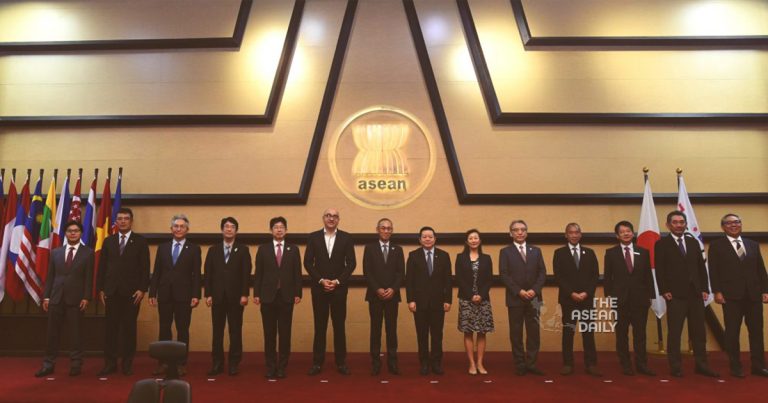3-8-2023 (JAKARTA) The Association of Southeast Asian Nations (ASEAN) and Japan have reached a landmark agreement on a new partnership focused on innovation and sustainability, commemorating their 50 years of diplomatic relations. ASEAN Secretary-General, Kao Kim Hourn, announced the development in Jakarta on Wednesday during the “15th Dialogue between the Secretary-General of ASEAN and the Federation of Japanese Chambers of Commerce and Industry in ASEAN (FJCCIA).”
The newly established partnership, known as the “ASEAN-Japan Co-Creation Vision,” centers on innovation and sustainability and is driven by the private sector. This collaboration is intended to pave the way for a new era of economic relations between ASEAN and Japan for the next half-century.
Hourn revealed that the FJCCIA provided recommendations based on four key pillars of the “ASEAN-Japan Co-Creation Vision,” aligning with the ASEAN Comprehensive Recovery Framework (ACRF). These pillars encompass broader economic integration, comprehensive digital transformation, progress towards a more sustainable and resilient future, and human capital development.
In addition to the new partnership, ASEAN has initiated negotiations to enhance the ASEAN Trade in Goods Agreement (ATIGA) to make it more impactful and relevant to the business sector. The upgrade of ATIGA aims to simplify rules of origin for goods, promote the adoption of digital technologies and paperless documentation, and facilitate trade for Micro, Small, and Medium Enterprises (MSMEs). Moreover, the agreement seeks to foster digital trade within the region, including ASEAN-Japan trade relations.
ATIGA is designed to establish a free flow of goods within the region, reducing trade barriers and promoting closer economic ties among member countries. The agreement aims to lower business costs, boost trade, and provide larger markets and economies of scale for businesses.
Under ATIGA, six ASEAN countries – Indonesia, Brunei Darussalam, Malaysia, the Philippines, Singapore, and Thailand – have eliminated intra-ASEAN entry fees in 99.65 percent of their tariff lines. Meanwhile, Cambodia, Laos, Myanmar, and Vietnam have reduced import duties to 0-5 percent in 98.86 percent of their tariff lines.
The “15th dialogue between the Secretary-General of ASEAN and the FJCCIA” witnessed the participation of prominent figures, including the Japanese Ambassador to ASEAN, Masahiko Kiya; Chair of the FJCCIA, Hiroyuki Ueda; and Executive Vice President of the Japan External Trade Organization (JETRO), Mio Kawada.




